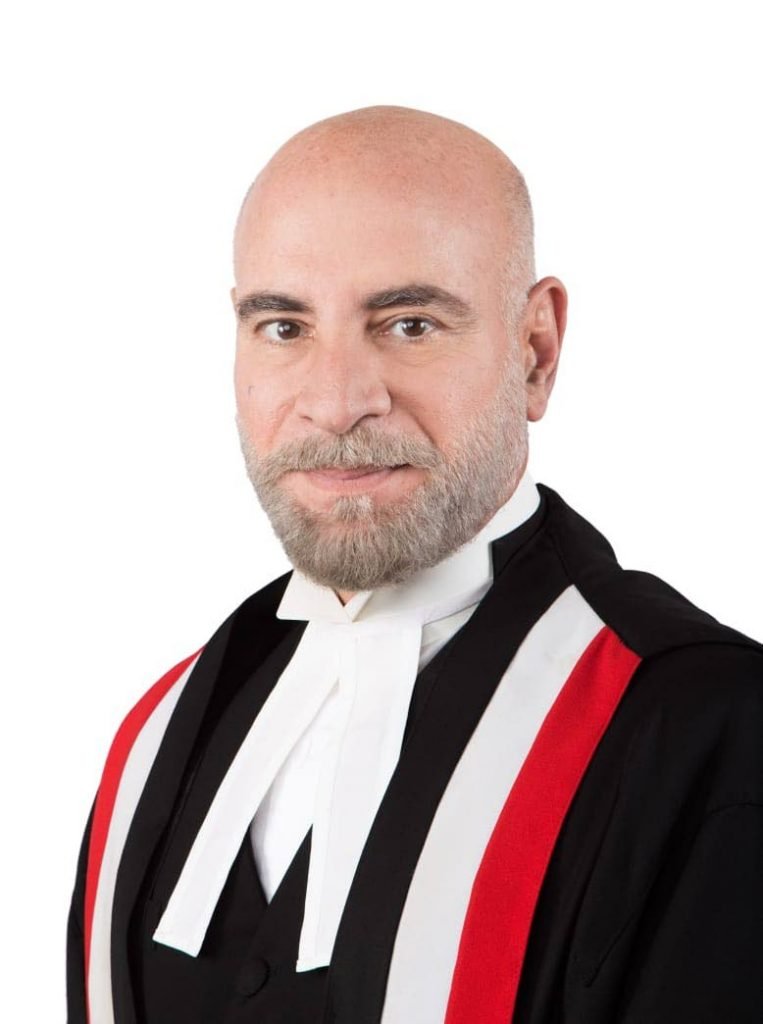Justice Seepersad’s haste questioned

JUSTICE Frank Seepersad’s same-day, 32-page decision on the injunction application of an 11-year-old Venezuelan girl may have been an error in judgment on his part.
Seepersad’s statement in his ruling on public policy on the migrant crisis in Trinidad and Tobago was also a cause for concern, raising questions of the possibility that he prejudged the case without its going to trial.
Justice of Appeal James Aboud on Tuesday had his own comments on Seepersad’s ruling as he and fellow judge, Justice Ronnie Boodoosingh, upheld the child’s appeal and dismissed Seepersad’s orders made on December 1, when he refused to grant the injunction, paving the way for the child’s possible repatriation.
Aboud drew reference to the speed with which Seepersad delivered his judgment. The issue was raised by the child’s attorney Gerald Ramdeen, at the hearing of the appeal on Monday. Ramdeen argued that Seepersad, in his 32-page decision, delivered 75 minutes after he heard submissions, did not assess the risk of injustice on the injunction issue and did not apply the proper test in determining whether interim relief should be granted.
Aboud said it suggested a commendable zeal on Seepersad’s part to move quickly in the face of a matter he felt was of extreme national importance, “so that is commendable.”
But, he said, “such expedition and speed may lead to errors in judgment by that speed and it may lead to a lack of mature consideration. And, in my opinion it would have been more appropriate for the judge to have taken the night to re-read the case law and read the authorities submitted to him.
“…And, I don’t know, meditate on what was submitted rather than rush to produce a 32-page written judgment in 75 minutes. It seems to me that the anxiousness to produce this written document led the judge away from the established law on the grant of interim injunctions,” Aboud said, as he referred to the law and cases which set the precedent on the issue.
On the prejudgment issue, Aboud said in the normal course of things, the child’s claim would go back before the judge for determination of the substantive claim.
However, Aboud said it appeared to him, “on reading the judgment, produced 75 minutes after arguments were heard, the trial judge expressed strong views on the outcome of the substantive hearing before him.”
Aboud read paragraphs from Seepersad’s ruling in which he criticised the mother’s arrangement for her child to be put on a pirogue, unaccompanied, to enter TT illegally, and his criticism of the State’s border policies and its obligation to secure the border. He said it appeared the judge was “departing slightly from his role and commenting on state policy or state action.”
As he again quoted from Seepersad’s decision, Aboud said the judge referred to affidavit evidence from one party “just on the basis of a hearing that took place in a matter of hours and judgment delivered 75 minutes after that hearing.”
Referring to the “language” used by Seepersad, Aboud said it suggested he was certain in his mind that crimes had been committed by the child, and were “so powerful in his mind,” that he directed the registrar to send the mother’s affidavit to the Police Commissioner and the Director of Public Prosecution.
Aboud reminded the party before the court was an 11-year-old child and the judge should have been clear in his decision who he was talking about.
He also said it was not for a child to be facing a magistrate on criminal charges while arguing before a constitutional court why she ought to remain with her mother pending the hearing of her claim.
“Nothing we have said, suggests that the child or mother are entitled to stay in TT but she does have a process to follow and at the conclusion, a decision will be made whether she had a right or not.
He said the alleged actions of the mother should have no impact whatsoever on the child’s application and the judge should have been diligent to avoid making findings that could interfere with his judgment on the substantive matter.
It was Aboud who recommended that the matter be sent to another judge, with which Boodoosingh agreed.
In addition to setting aside Seepersad’s order to send the affidavits to the commissioner and DPP – which was another of Aboud’s suggestions – they also sent the matter back to a different judge for the substantive claim to be heard.


Comments
"Justice Seepersad’s haste questioned"